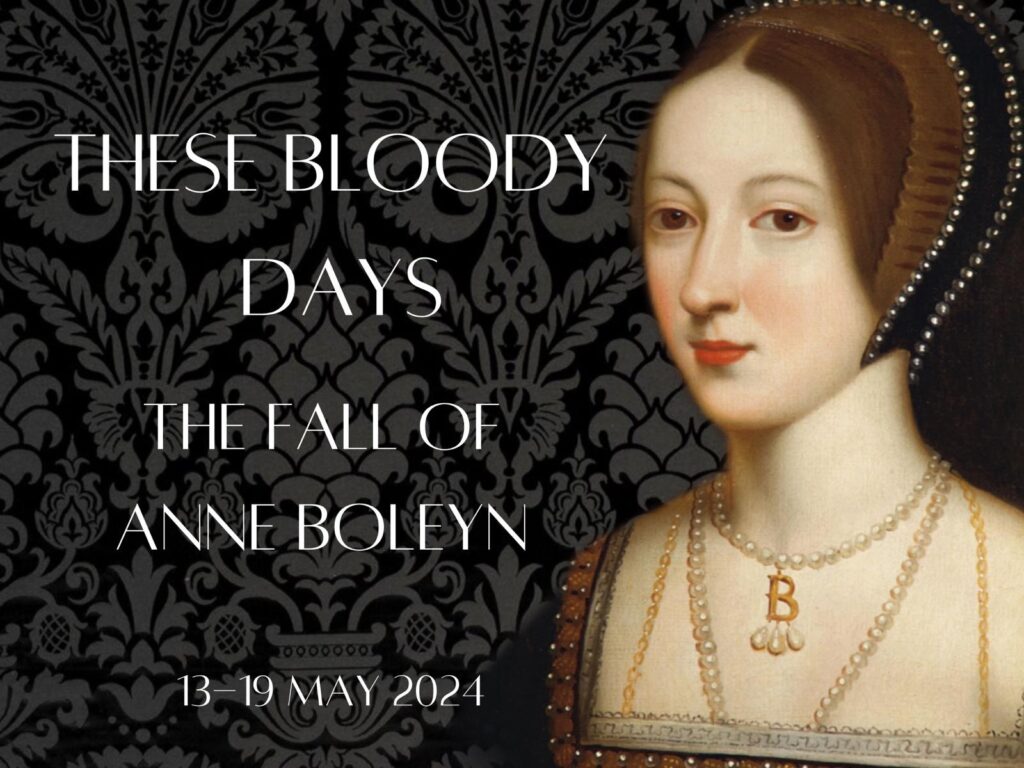Guest post by Robert Fripp
January, 2012
Richard III and the North of England
Through the medieval period and into the early Tudor years it was common practice for a noble family to send a seven- or eight-year-old son away to receive military training in another, kindred household. The boy who would grow up to become Richard III was dispatched to the household of his older cousin Richard Neville, the sixteenth Earl of Warwick. There was no better place to toughen the boy: in time, Warwick’s power would earn him the sobriquet “The Kingmaker.” Young Richard joined Warwick’s household at Middleham Castle in the North Riding of Yorkshire, where the ardors of military training gradually prepared him for knighthood. The year was 1462.
Warwick died nine years later in battle at Barnet in 1471, and possession of Middleham Castle passed to the young Richard, Duke of Gloucester. Among those whom Richard had met as a boy during his time at Middleham was Warwick’s daughter, Anne. A few years later, with Lady Anne Neville still under twenty and already a widow, Richard and Anne would meet again. The first scene of Dark Sovereign finds Richard proposing to Anne. But first he reminds her of their time together at Middleham:
Richard Gloucester: ’Twas in your father’s house I learn’d to war.
Remember wi’ yourself, how I bethought was to play David
in Golias’ armour; whilst did you, a little golden girl,
sit out and pick pied daisies.
Charles Ross, Professor of History at the University of Bristol (and a man of Yorkshire himself) was among the first modern academics to make a fine study of Richard’s network of links and connections with men of power and the influential institutions in the North. Richard’s influence extended throughout Yorkshire and across the Pennines into Lancashire, north to Durham, and on to the Scottish border. As well, for nearly a decade Richard served as military commander in the North, defending the border against Scottish raiders on behalf of his brother King Edward IV. In Dark Sovereign, Richard learns by letter that Edward’s ambitious queen, Elizabeth Woodville, appears to be reaching for regal power herself, and his allies demand that he hurry to London. Richard angrily responds:
Richard: I am to Edward shield and general captain
in the office of a wall against the Scot.
But these would have me hole the wall, lay down my arms,
quit vigilance, invite invasion.
Is England so phantastically king’d, that I
—while Scotsmen ravish English wives—
must haste to London, there to save my brother from his queen?
Psha! His fools-bell is soon rung doth war two fronts.
Buckingham, Hastings, Howard, Stanleys,
and the mess of Woodvilles:
Pox of their power, the hollow profit of their court!
Let them writhe their necks like eels in a tun.
I piss against their politics—saving that the kingdom
cleave to Edward’s line of life, and eke his line.
Though it be comfort-killing, yet the Border is my stage,
and I shall order myself in the play I have in hand.
By this time Richard was a man of power, centred on Middleham Castle in Yorkshire’s North Riding. Middleham stood at the centre of his web. His attachment to the North may have been based on pragmatism rather than affection. Either way, Richard had no time for arbitrating rivalries at his brother’s Court in London. But then came news that his brother, King Edward IV, had died, while Edward’s widow and her Woodville kindred were making a coordinated grab for power. In Dark Sovereign, Richard makes his first counter-move:
Richard: Now, Anne, do thou but wait: I will not sit on thorns.
I shall to York, whereat sad mass of requiem
shall will that soul to God which I did love.
There too the northern lords and barons,
for the nonce to swear the prince their king.
Thence to London, mine office to repone:
I’ll taste this future, what come may.
Notice, Richard’s first move was not to London. To confirm and strengthen his allegiances and loyalties in this crisis, his first destination was York.
Within weeks, Richard’s coup d’état was in effect, with his nephew, the uncrowned Edward V, in his custody. But Richard was no tyrant. He had administered large parts of the North on behalf of the king, his brother. A decade of peacemaking and administrative experience had not prepared him for assuming the role of dictator. Quite the contrary. Lacking familiar landmarks, anxiety took hold. Following her husband south to London, Lady Anne arrived to find a changed, anxious man:
Anne: What, no greeting?
Spouse mine, art thou moody?
Smooth thy creas’d front: I find thee melancholy, chang’d.
And, distress of weather speaks a storm.
Richard: Thou wert better stay at Middleham!
Anne: Here’s sour welcome home!
Richard: ’Fore God, I would the power lay at York!
Anne: What is thee? Art sick o’ th’ sullens
that thou call’st me to an account for England’s history?
Richard: Southren honour’s little lack of dead.
Anne: Regard me! She looks into his eyes.
Hast thou the jaundice? Nay.
Richard: Dost glass thyself? [Are you using my eyes as a mirror?]
Anne: Then thy feckless melancholy should proceed of atrabile.
Richard: London is a midding-pit.
Flatterers spring up like doubtful agaric…
Anne: It’s said black bile doth make for cunning.
Richard, art thou wiser?
Richard: …Slanderers, like flies on dung, abound.
Largely thanks to nineteen years worth of machinations by his sister-in-law, Queen Elizabeth Woodville, Richard found himself indeed between a stone and a hard place. In Dark Sovereign he discusses their predicament with Anne several times, recalling their life as children at Middleham:
Richard: There was a day—does it remember thee?—
since once in younger, foolish-witty years, we ventur’d out
on the River Youre to stand on the ice, hearing it so crack [Modern: Ure]
whose strength had soon yielded to hurl us down.
How thin the ice; how deep, how swift the torrent runs below.
Shall he be resolute, that is so unresolv’d?
Anne: From unease beware, lest like a spawnling
it should engender in thee, devouring the sanctity of reason.
Richard: Unease is not equivocal!
It springs from still experience, that very quality
wherewith a man absorbs his nurture out of others’ minds.
Suffice that Richard, by reason of affection, connections or power, felt more attached, more comfortable in the North of England. Through his next two years as king he had difficulty mastering the levers of London-based Southern power. Faced with battle, he prepared for it in the North, initially at Nottingham. On the morning of battle, Richard marched out of Leicester before encouraging his men at Bosworth:
Richard: My own true Northern men,
beyond that tongue can tell, ye wot it well,
I love you as myself that stand with me the day.
…Lést there be that weary in well doing, mark:
The mightier onset that we give today,
the more remains to you King Richard’s peace hereafter.
In earlier years, Richard Duke of Gloucester had indeed brought peace to the North, calming incessant feuds between its great families, the Percys and the Nevilles, while holding back the Scots. Duke Richard’s peace had been effective in the North. But “King Richard’s peace” was not to be. He died that day at Bosworth.
Lines and passages from Dark Sovereign are Copyright Robert Fripp 2012, and may not be reproduced in any medium without the author’s permission.
Read my Q & A with Robert Fripp here.























A wonderfully thoughful and beautifully written article. The excerpts from DARK SOVEREIGN bring Richard very much alive, and the language is gloriously atmospheric. Thanks, Barbara
A lovely read.